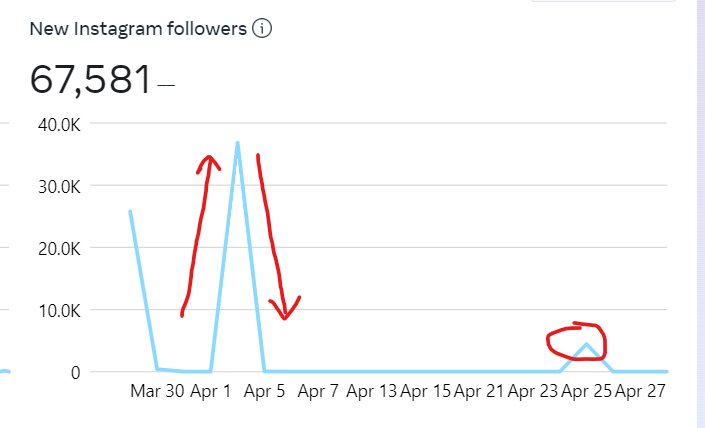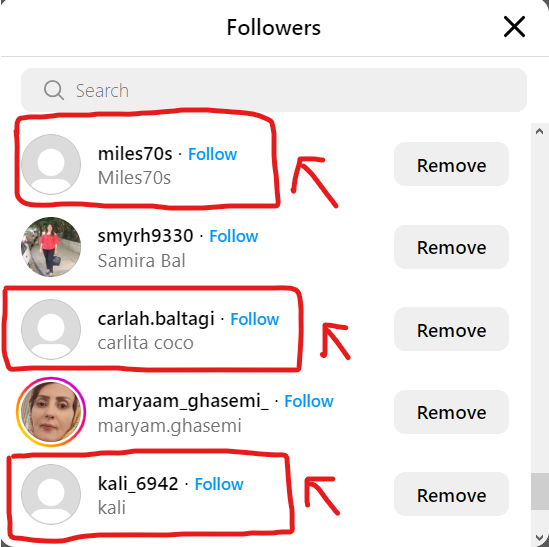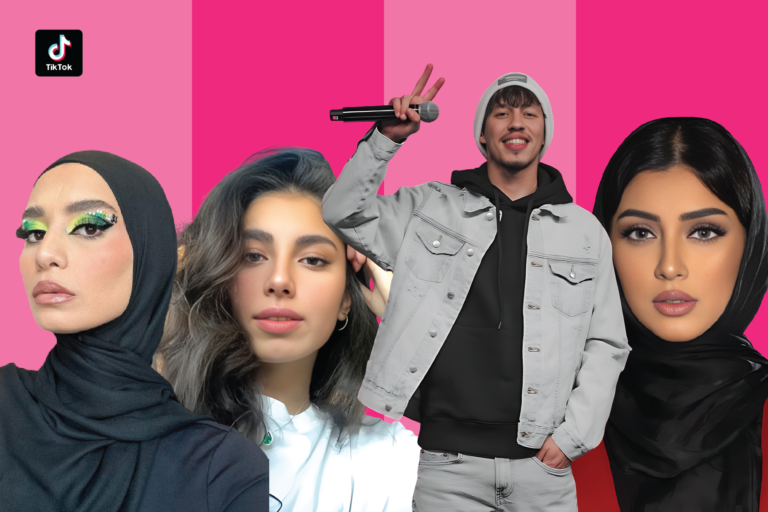influencer marketing scams are on the rise in Dubai, thanks to the popularity of influencer marketing in the region. This is when social media users buy followers, comments, and likes to make their accounts look more popular.
If you’re a business owner in Dubai looking to partner with creators and influencers, it’s important to be able to spot scammers. With the right tools and support, you can easily identify fake influencers and avoid damaging your brand’s reputation.
Dubai Influencer fraud: what it is and why brands should avoid it
Influencer fraud is a growing problem in Dubai, where social media users purchase fake engagement and followers to give the perception of success and popularity.
Some users do this to attract new followers and grow organically, while others do this to lure brands into partnerships. The illusion of popularity can attract unsuspecting brands, leading to partnerships that may not produce results.
These bad actors also harm the influencer marketing industry in Dubai because brands will see diminishing returns on investment and lose trust in their audiences. However, the opportunity to reach potential customers by partnering with genuine influencers in Dubai is more than worth the risk.
According to the 2023 latest consumer research report, 64% of consumers in Dubai repeatedly make purchases based on an influencer’s recommendation or review at least some of the time. This means that marketing teams in Dubai need to recognize these scams so they can invest their budget wisely and reach their ideal customer base through influencer partnerships.
Fraudsters waste time, effort, and resources, giving legitimate content creators in Dubai a bad name.
Why influencer marketing scams keep growing in the UAE
As per the Competition Regulation Committee (CRC) of the Ministry of Economy in the UAE, more than 25% of individuals in Dubai who fell victim to fraud in 2023 reported that the fraudulent activities originated on social media. In the preceding year, global organizations incurred losses amounting to $1.5 billion due to influencer marketing scams. Social media stands out as the most lucrative avenue for scammers to connect with individuals, a trend not exempting Dubai.
Primarily, social media provides a cost-effective means to engage with billions of people worldwide, including those in Dubai. With increasing sophistication, scammers find it simpler to fabricate false identities or compromise existing accounts to connect with their followers. These fraudsters meticulously analyze their target audience, employing tools similar to those used by advertisers to tailor fake advertisements based on personal information such as age, interests, or previous purchases.
How do fake influencers trick you ?
- Purchasing fake followers: This is the most common type of influencer marketing scams, and it involves buying followers from bots or other sources. Fake followers are often inactive accounts or bots that do not interact with the influencer’s content. This can create the illusion of popularity and influence, making the influencer appear more significant than they genuinely are.
- Boosting metrics with bots: In addition to fake followers, influencers may use bots to boost various engagement metrics such as likes, comments, and shares. Bots can automatically interact with content, creating a false impression of high engagement. Brands collaborating with influencers may be misled by these inflated metrics when assessing an influencer’s reach and impact.
- Forming engagement pods: Engagement pods consist of groups of influencers who collaborate to artificially boost each other’s engagement metrics. Members of the pod reciprocally like, comment, and share each other’s content, contributing to inflated engagement numbers. This can deceive brands into thinking an influencer has a highly engaged audience.
- Creating copycat accounts: Some fraudulent influencers may go to the extent of creating duplicate or copycat accounts to mimic legitimate influencers. These accounts pose as the real influencer, attempting to siphon off followers and opportunities. This type of fraud not only harms the authentic influencer’s reputation but also misleads brands and sponsors.
- Failing to post: Influencers are expected to consistently produce and share content. However, some engage in fraud by not fulfilling their content creation obligations. This lack of activity, despite having a substantial following, can mislead brands who may assume the influencer is regularly engaging with their audience.
Tackling and preventing influencer fraud is imperative for upholding transparency in the influencer marketing sector in Dubai. Brands should implement rigorous screening procedures and leverage tools to detect indicators of fraudulent practices, guaranteeing partnerships with authentic influencers whose influence and impact align with their objectives.
How to identify fake influencers when working with influencer marketing agencies ?
Fake influencers are a growing problem in the influencer marketing industry. They can waste your time and money, and damage your brand reputation. It’s important to be able to identify fake influencers, especially when working with influencer marketing agencies.
Here are some tips on how to identify fake influencers when working with influencer marketing agencies:
Check the agency’s reputation.
Do some research on the agency to make sure they have a good reputation. Read reviews from other clients and look for any red flags, such as complaints about fake influencers or poor performance.
Ask the agency about their vetting process.
How do they identify and select influencers? What criteria do they use to evaluate influencers? A reputable agency will have a rigorous vetting process in place to ensure that they only work with real and authentic influencers.
Be wary of agencies that offer too-good-to-be-true deals.
If an agency is promising to deliver high-quality influencer marketing results for a fraction of the cost, it’s likely that they’re using fake influencers.
Do your own research on the influencers.
Don’t just rely on the agency’s recommendations. Take some time to research the influencers yourself. Look at their engagement rates, follower demographics, and content. Are they authentic and relevant to your target audience?
Here are some specific red flags to look for when identifying fake influencers:
Low engagement rates : A low engagement rate (the percentage of followers who like, comment, or share posts) can be a sign that an influencer has fake followers.

Sudden spikes in follower count : If an influencer’s follower count has suddenly spiked, it could be a sign that they bought followers.

Generic or inconsistent content : Fake influencers may have generic or inconsistent content, often filled with irrelevant hashtags.
Fake followers :Fake followers often have incomplete profiles, lack of posts, or profiles filled with spammy content.

Steps you should Take in case an Influencer marketing agency tries to scam you !
Identify authentic influencers with a real following
To steer clear of influencer fraud and ensure authenticity in your campaigns, start by identifying influencers in Dubai with a sincere and engaged following. Seek those who share pertinent and valuable content, maintaining consistent interaction with their audience. Employ tools like HypeAuditor, SocialBlade, or FollowerAudit to scrutinize metrics such as audience quality, growth rate, and engagement. Additionally, assess their credibility through reviews, testimonials, and past collaborations with other reputable brands.
Set clear goals and expectations for your campaigns
Once you’ve identified authentic influencers, proceed to set explicit goals and expectations for your influencer marketing campaign in Dubai. Clearly communicate objectives, KPIs, budget, timeline, deliverables, and collaboration guidelines. Develop a mutual understanding of how performance will be tracked and measured, utilizing methods like unique links, codes, hashtags, or dedicated landing pages. Regularly monitor content quality, consistency, and alignment with your brand’s voice and values.
Optimize your influencer content for SEO
The third crucial step involves optimizing influencer content for SEO to enhance organic traffic, leads, and conversions on your website in Dubai. Collaborate with influencers to craft content aligned with the search intent, keywords, and topics relevant to your local audience. Encourage the use of pertinent tags, captions, and descriptions across posts, stories, videos, or podcasts. Leverage the influencer’s authority to generate high-quality backlinks, social signals, and user-generated content that resonates with the Dubai audience.
Test and adjust your influencer strategy
Concluding the process, rigorously test and refine your influencer strategy in the Dubai market, learning and adapting from the results. Analyze data and metrics against your campaign goals, and gather feedback from influencers, your audience, and your team. Identify successful tactics, areas for improvement, and elements that didn’t resonate well. Experiment with different influencers, platforms, formats, and messages to ascertain the optimal fit for your brand and SEO objectives within the Dubai landscape.
How to avoid getting scammed by influencers with fake followings?
To safeguard against influencer marketing scams in Dubai, rely on your instincts and conduct thorough investigations. Don’t be swayed by impressive follower counts; scrutinize engagement levels, demographics, and content authenticity. Be wary of abrupt spikes in followers, as this often signals the purchase of fake followers. Never pay for followers, as genuine influencers do not engage in such practices. Prioritize the protection of your information, refrain from upfront payments, and insist on contractual agreements. Maintain a discerning approach; if an offer appears too good to be true, exercise caution. Seek insights from other brands regarding their experiences, and above all, trust your intuition. Follow these guidelines to navigate influencer partnerships and steer clear of scams involving fraudulent followings in the dynamic landscape of Dubai.
How do you know if an influencer has fake followers?
To ascertain the legitimacy of influencers in Dubai, scrutinize their follower base for irregular spikes, disproportionate engagement, and assess the genuineness of their followers by analyzing demographics and profile quality. Employ online tools such as HypeAuditor or Social Blade for supplementary insights and a more comprehensive evaluation of their online presence. This meticulous approach ensures a discerning selection of influencers with a genuine and engaged audience in the dynamic landscape of Dubai.
What percentage of followers are fake?
The incidence of fake or inactive accounts on Instagram is contingent on individual influencers, with an overarching estimation suggesting a potential prevalence of up to 55 percent. Notably, in the context of social media brands, an average of at least 25 percent of followers exhibit indications of being inauthentic. It is imperative for stakeholders to consider these statistics, particularly when assessing follower counts, a consideration especially pertinent for influencers with larger audiences.





